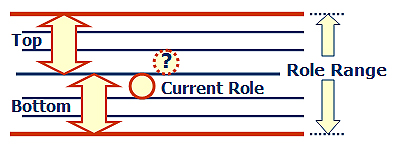From the Ask Tom mailbag:
Question:
We just completed an aggressive plan to expand our small chain of retail stores. Our main constraint in adding more stores is our inability to predict what profile, traits or backgrounds to consider for our future store managers.
Do you have a predictive model or process for hiring new store managers?
Response:
Here is a desirable characteristic, have they ever managed a retail store before? I know that is not what you wanted to hear. I know you were looking for a paper and pencil test that someone could take, push into a computer to get a screen result that says, “Shazam, I think you got one, here!!”
It’s not about a profile, it’s all about the work. Define the work well and interview for the work. Here are the four absolutes.
- Does the candidate have the capability for the level of work defined in the role?
- Does the candidate possess the necessary skill for the level of work defined in the role?
- Does the candidate have interest or passion for the level of work defined in the role?
- Does the candidate exhibit reasonable behaviors for the level of work defined in the role?
Each of the four absolutes hinges on defining the level of work? Your question did not describe the size or scope of the store operation. That is where I would start.
Is the store a small boutique store, where the store manager also doubles as the manager of the day (MOD) and head cashier? Are there only two floor personnel in the whole store at any one time, covering two retail shifts from 8a-10p, including opening and closing? Is all purchasing, merchandising and planogramming dictated by headquarters based on off-site computerized inventory systems? These characteristics point to a level of work at Stratum II (S-II).
OR
Is the store a medium size store with multiple checkout lanes, 10-12 floor personnel at all times, where there is a manager of the day (MOD) in addition to the store manager? Is all purchasing, merchandising and planogramming still dictated by headquarters based on off-site computerized inventory systems or does the manager have discretion on inventory levels based on geographic preferences and seasons? These characteristics point to a level of work at S-III.
OR
Is the store a large box or multi-department retail environment with 20 plus floor personnel at all times where there are departmental managers, an MOD and a store manager? Does this manager participate, providing input based on judgment, for decisions related to purchasing, merchandising and planogramming? Does this manager participate, providing input based on judgment, for planning scenarios for the coming selling seasons beyond 24 months? These characteristics point to a level of work at S-IV.
First, define the level of work, then circle back to the four absolutes and craft your interview questions. For more details, and there are lots of details, you can comb these archives under the category Hiring Talent. Or you could pick up a copy of my latest book, Hiring Talent, available at Amazon or Barnes and Noble.
